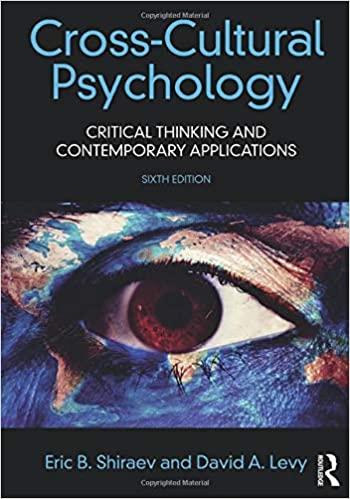Question
This week we focused primarily on one central topic in social psychology: namely, the ways that we learn about and judge other peopleour social cognition.
This week we focused primarily on one central topic in social psychology: namely, the ways that we learn about and judge other peopleour social cognition. We have seen that social cognition is efficient, frequently operating quickly and even out of our awareness, and generally accurate. However, although we are often quite accurate at evaluating other people and in creating effective social interactions, we are not perfect. The errors we make frequently occur because of our reliance on our mental knowledge (our schemas and attitudes) as well our tendency to take shortcuts through the use of cognitive heuristics. We use schemas and heuristics as energy savers, because we are often overwhelmed by the amount of information we need to process.
Directions: Pick 2 out of 4 cognitive heuristics that influence social cognition to research and discuss.
- The representative heuristic
- Gambler's fallacy,
- Availability heuristic
- Hindsight bias
Discussion Question:
- Research and define the two cognitive heuristics that you have chosen
- Discuss how these heuristics influence social interactions (negatively or positively)
- Give examples to show that you understand the terms
- include peer reviewed articles and citiations
Step by Step Solution
There are 3 Steps involved in it
Step: 1

Get Instant Access to Expert-Tailored Solutions
See step-by-step solutions with expert insights and AI powered tools for academic success
Step: 2

Step: 3

Ace Your Homework with AI
Get the answers you need in no time with our AI-driven, step-by-step assistance
Get Started


